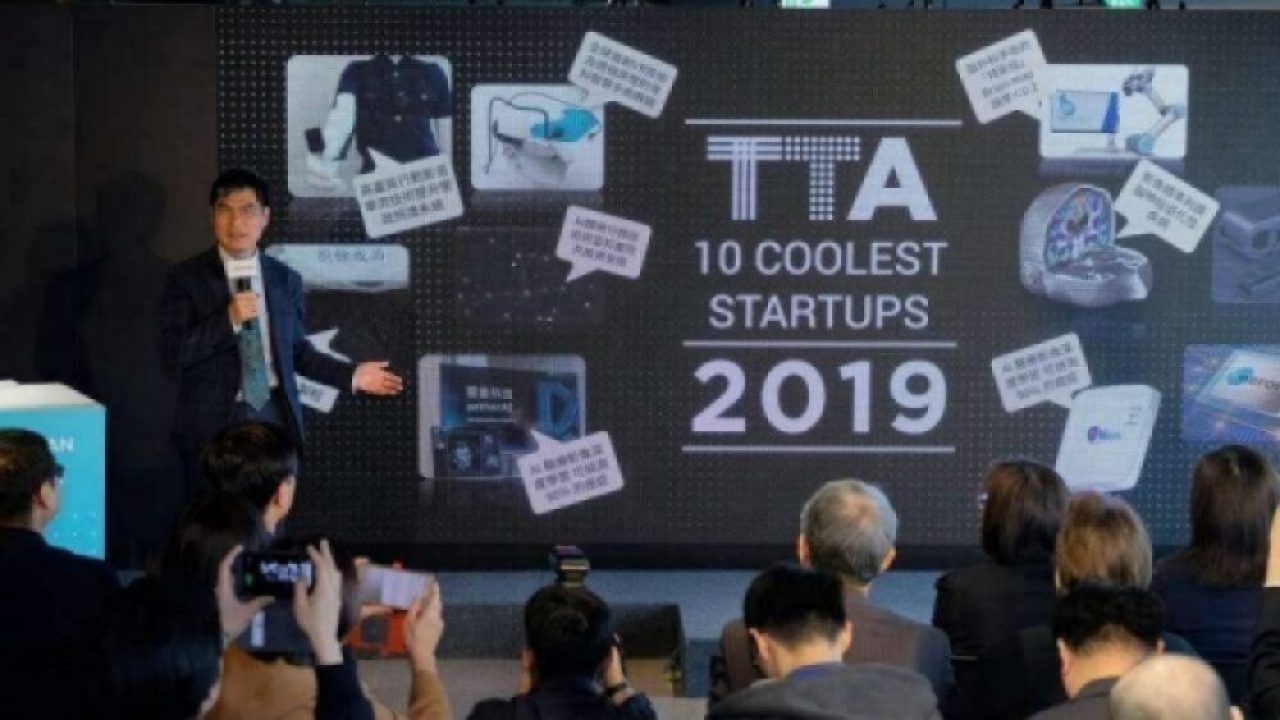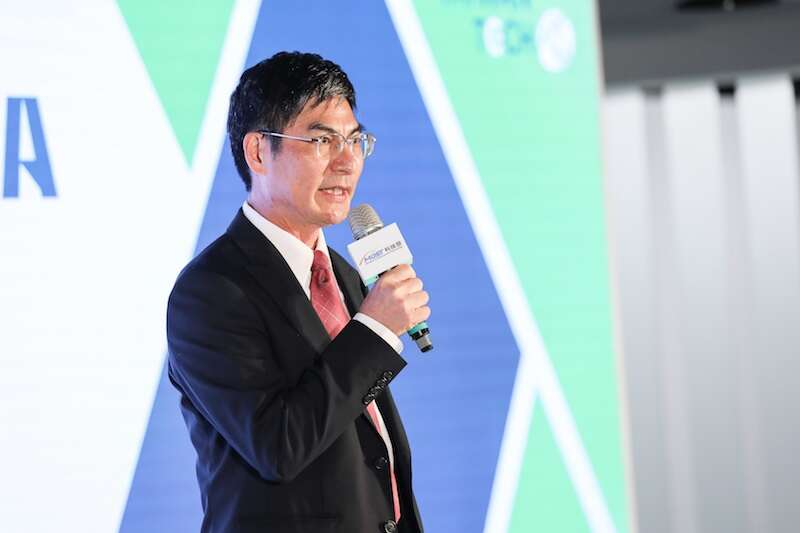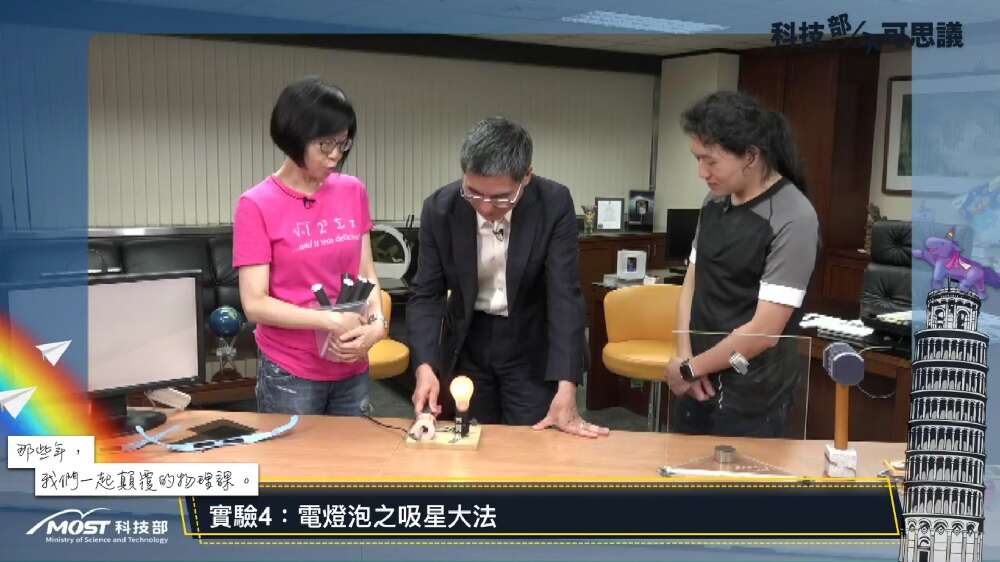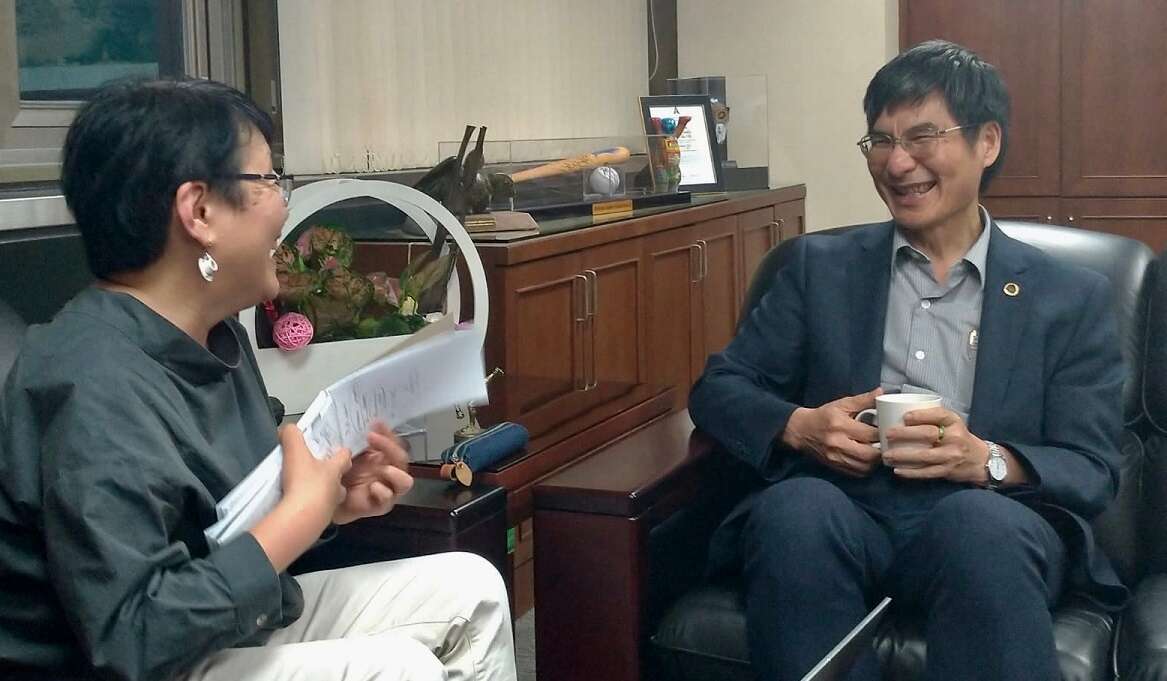An Interview with Taiwan’s ‘King of Innovation’
Article By : Junko Yoshida

Chen is the rare bird - a world leader focused on incubating new tech companies. He grew up reading EE Times, published papers at ISSCC, and taught at the region's top university as an EE professor.
TAIPEI – Given an opportunity, every high-ranking official or bureaucrat anywhere will jump at the chance to be a patron of startup creation. Besides fostering economic growth while providing hopes and dreams to the younger generation, startup promotion is good public relations for a politician. Emmanuel Macron is an example. His efforts as Finance Minister to push “La French Tech” eventually earned him plaudits as the “Startup President.”
Liang-Gee Chen, Taiwan’s Minister of Science and Technology, is not running in Taiwan’s 2020 presidential election. But his energy, enthusiasm and methodical approach to accelerate Taiwan’s development of startups is his pet project.
Among leaders all over the world who are spending energy on startups, Chen is the rare bird. He has grown up reading EE Times, published pioneer papers at ISSCC for seven consecutive years, and taught at the region’s top university – National Taiwan University – as an EE professor.

When Chen talks about AI, 5G and quantum computing, he isn’t spewing buzz words to get media attention. He understands underlying technologies and can explain exactly the talent Taiwan needs, what must be taught at universities, and the financial support structure Taiwan requires for fledgling startups that can eventually reach the world stage.
In an exclusive interview with EE Times, Chen spoke on wide-ranging topics including the past, the present and the future of Taiwan’s high-tech industry.
EE Times: I hear you just finished your annual recruiting tour in Europe. Last year, when I met you, you’d just done a similar tour in the United States. How is it going?
Liang-Gee Chen: Apparently the word must have gotten out. In our recruiting event in London, we had more than 300, with 120 in Paris and more than 250 in Berlin. Compared to last year, the number of attendees tripled.
EE Times: So what exactly are you offering to these professors and post-docs living abroad?
Chen: We are making 60 teaching positions available – annually – inviting these people to come to Taiwan. One young Taiwanese postdoctoral researcher working in Paris accepted a university dean’s invitation on the spot to take up a lecturing job in Taiwan. A senior professor with more than 20 years of teaching experience also raised his hand.
EE Times: What do you think draws these people to Taiwan?
Chen: Two good reasons. First, good teachers are the foundation of a nation. I think the opportunity to teach good students is always compelling, but it is especially so in a society like Taiwan where students respect teachers and students are willing to get inspired.
Second, we recognize we are in the fourth industrial revolution. Intelligent infrastructure is needed. We hope those who return to Taiwan via our “Research and Teach” program will innovate new technologies. Working with them, Taiwan hopes to catch the wave of this latest ‘intelligent’ revolution.
EE Times: Of course, the fourth industrial revolution is unfolding not only in Taiwan, but also in China, in Europe and everywhere else. What’s Taiwan’s edge?
Chen: More and more of us are realizing that the digital world has two sides. It has given us freedom in communication and helped us stay connected all the time. On the flip side, though, we see the emergence of a digital society where citizens’ movements and behavior are constantly tracked, surveilled and tightly controlled.
EE Times: Give me an example.
Chen: The Social Credit System in China.
*[Editor’s note: Under the Social Credit System, also known as the national reputation system, China tracks its citizens, including their online behavior, and rates them.] *
If your credit score is low, you can’t even purchase a train ticket.
EE Times: In other words, the progress of the digital society – connected to the Internet – has advanced to the point of harming society, through a form of mass surveillance that leverages big data analysis technology.
Chen: Some German automakers we met on our mission told us they are worried about this – especially after China changed its political system and Xi Jinping chose to become President for life. Many German car companies who have already set up their operations in China are scared. But they realize it’s probably too late to return to Germany now.
Researchers, students and corporations need freedom in selecting research topics and the way they implement business practices. Taiwan can offer them much needed freedom and trust.
EE Times: Last year, when we talked, you discussed all kinds of plans to build a supporting infrastructure for startups here in Taiwan. At that time, I rolled my eyes, thinking, ‘OK, these are [still just] plans.’ Tell us your progress a year later.
Chen: We opened Taiwan Tech Arena (TTA) last year, with a goal to build Asia’s best tech startup ecosystem.
*[Editor’s note: With room to house 100 startups, TTA exists not just for Taiwan’s startups but also for many accelerators coming from abroad. The mission is to “propel Taiwan onto the global startup stage,” said Chen last year.] *
We are building new forces to create new market demands and move high-tech development faster.

EE Times: I had a chance to visit the Industry Liaison Office (ILO) at National Taiwan University (NTU) this week. Deeper collaborations and partnerships between corporations and universities seem to be coming along.
Chen: I’ve been working to develop various startup-related programs on campus – including an accelerator called “NTU Garage,” like YCombinator, and “NTU Angel Fund” — since the time I was teaching at NTU.
[Editor’s note: From 2009 to 2012, Chen was deputy dean of college of Electrical Engineering and Computer Sciences. From 2013 to 2016, he was the EVP of academic and research at National Taiwan University.]
EE Times: I heard from ILO people that you were nicknamed the “King of Innovation” at NTU.
Chen: Ha ha. But creating an environment for startups has always been my passion.

Taiwan needs a new model
EE Times: Clearly, Taiwan is working hard to accelerate the creation of a startup ecosystem, with your meticulous and comprehensive plan and methodical approach, in the span of three to four years. This sort of advance took Silicon Valley 30 to 40 years, and it had to happen all organically. For example, Silicon Valley had companies like Fairchild and National Semiconductor, which became the foundation for a lot of spin-offs, spin-outs, or startups. You don’t exactly have a similar movement in Taiwan. Have we seen TSMC or UMC spinning out startups?
Chen: Well, no, other than a division of UMC that became MediaTek. TSMC and UMC are great examples of Taiwan’s success, but these foundries have been too busy building their own business.
EE Times: The same is true with PC and smartphone companies in Taiwan?
Chen: Yes, they were also too busy with doing their own business. Then, the Internet era came. Companies like Google and Facebook popped up and dominated the world. Under such a winner-take-all model, Taiwan totally missed the Internet era. We created no new business or startups during that era.
EE Times: So what hope do you have now?
Chen: After the foundry business we successfully built, Taiwan needs a new model where a lot of companies can follow.
EE Times: What model would that be?
Chen: We see a new opportunity emerging for startups poised to leverage hardware co-working with software – especially in AI, data science and edge servers. In the coming intelligent era, the key is the sensor for continuous monitoring. Sensors are hardware. Using Taiwan’s strength in hardware, we are hoping for the birth of cross-over businesses. We think startups that come up with deeper integration of hardware and software are promising.
EE Times: But a lot of people say that AI business can be fragmented and it’s hard to scale AI hardware.
Chen: Unlike the winner-take-all Internet model, I think this type of fragmentation actually works well for Taiwan. Whether it is a low-latency IoT application for 5G or immersive video and special hardware for VR/AR, there will be many business opportunities for Taiwan companies to integrate hardware and software.
Recommended
Focus on Taiwan: Liang-Gee Chen Interview
EE Times: To foster such a new business model, what can MOST do?
Chen: First, we make sure to allocate enough resources for new projects. Second, we want to make regulations in Taiwan friendlier to the operations of startups. Third, change the culture – which is the hardest. Give enough incentives to researchers to develop startups or go abroad for internship or have experience in accelerators in Silicon Valley, for example.

EE Times: I’m impressed with your energy and enthusiasm for building an ecosystem for startups. But you’ve been in the ivory tower most of your career, and if I am not mistaken, you’ve never worked in the industry, either. Where does this strong interest in startups come from?
[Editor’s note: Unlike many other Taiwanese pioneers in semiconductor technologies, Chen had never studied in U.S. universities. When we asked why, Chen, the son of a peanut farmer, told us, “I couldn’t. I was too poor.”]
Chen: Between 1993 and 1994, I had an opportunity to work at AT&T Bell Labs in Murray Hill as a visiting researcher. I worked in the DSP research department. I saw firsthand how U.S. researchers think about their role. They are constantly thinking of a way to create impactful values for products. It was all about transitioning [their technical] papers to products. As they often say, IP to IPO.
EE Times: Back in the 1990s, what research were you engaged in?
Chen: I was doing JPEG 2000, MPEG-1, MPEG-2, MPEG-4, H. 264. I’m one of the few who had pioneer papers published on these topics for seven consecutive years at ISSCC.

EE Times: Minister Chen, thank you so much for your time. It's always a pleasure talking to you.
Subscribe to Newsletter
Test Qr code text s ss


